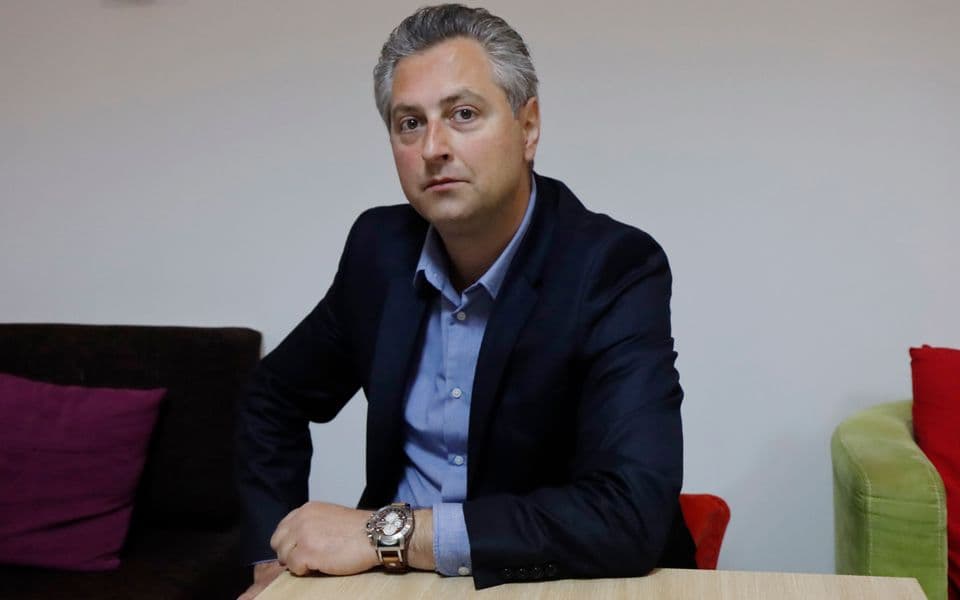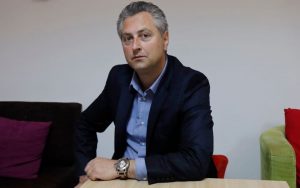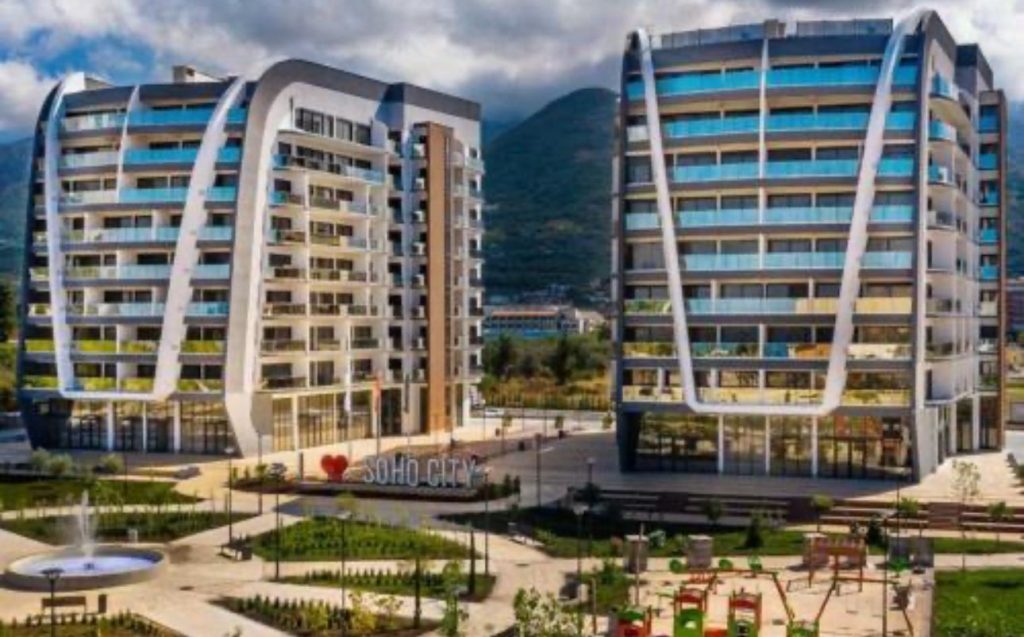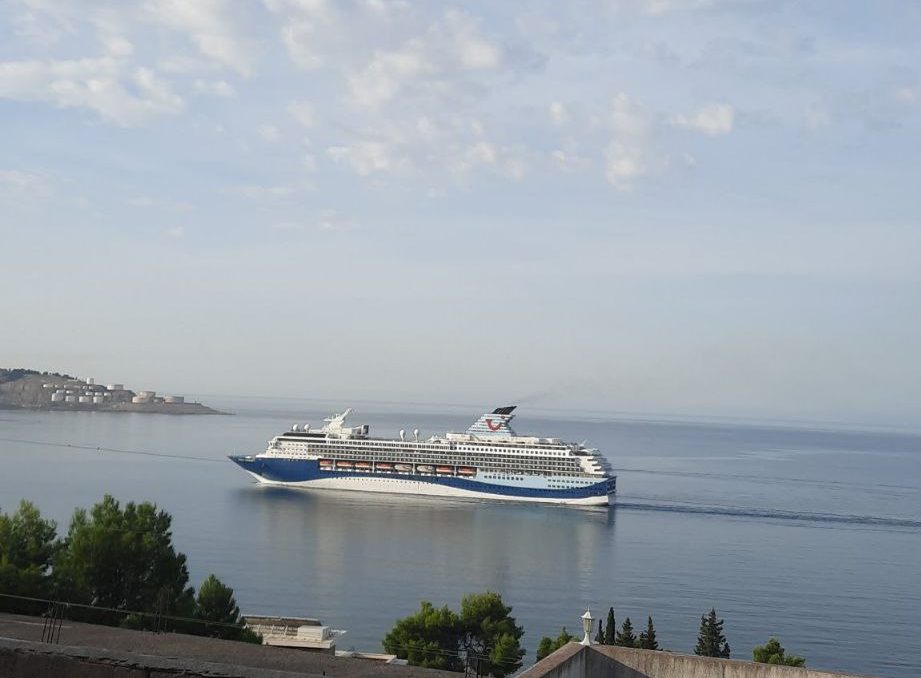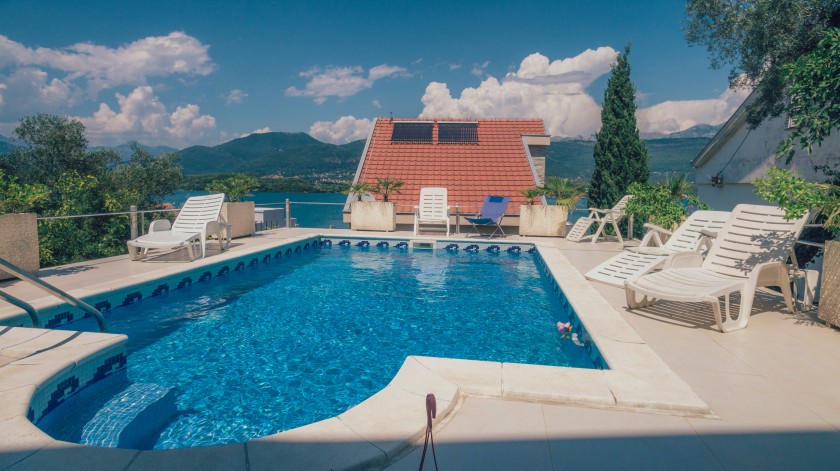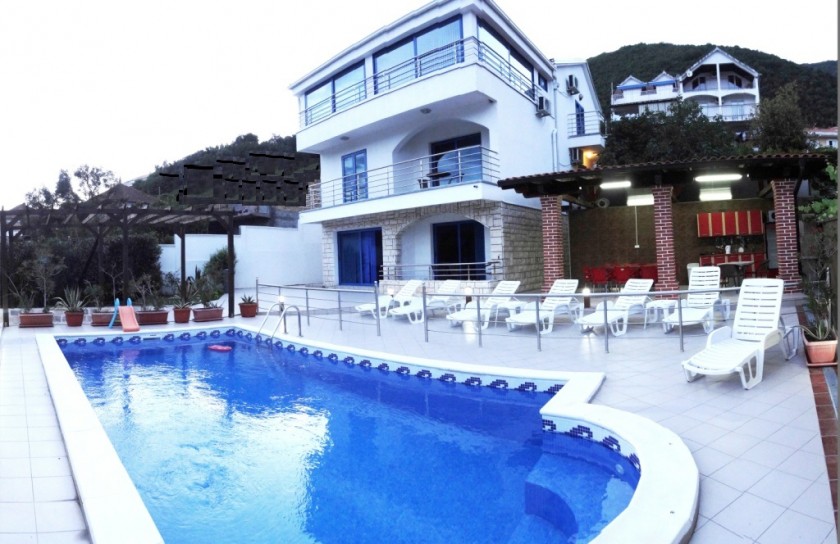“Montenegro should consider the possibility of relaunching the Citizenship Program by Investment, possibly with appropriate adjustments. The previous program, launched in 2019, was designed to approve up to 2,000 applications for citizenship, but the number of applications that met the conditions was less than 1,000. This means that there is room for more than 1,000 additional applications with a renewed program,” Bojan Bugarin, an expert in immigration law and citizenship, and former coordinator of Montenegro’s visa and post-visa liberalization process with the EU, said for portal Bankar.me.
Bugarin, who was also the coordinator of Chapter 24 on migration within Montenegro’s EU negotiations, is confident that Montenegro would greatly benefit from the relaunch of the program. He believes that the country can be satisfied with the program’s success, with an estimated total contribution of over 500 million euros to the Montenegrin economy.
“If the Government of Montenegro had decided to extend the Program until the originally planned limit of 2,000 approved applications was reached, the potential revenue that could have been generated from the Program before its closure would have amounted to over one billion euros,” Bugarin said.
He recalls that Portugal, Ireland, Greece, Hungary, along with Malta, were among the countries that launched such “golden visa” programs for the wealthy, allowing them access to the valuable freedom of movement within the EU. The investment migration industry brought significant profit to Europe, with participating countries earning over 21 billion euros between 2011 and 2019.
How do you comment on the recent decision by the EU’s highest court allowing Malta to continue granting citizenship to wealthy investors? What implications could this decision have for Montenegro?
As is well known, Malta’s investment citizenship program allowed individuals to acquire citizenship to live and work in the country with a minimum donation of 600,000 euros. Required investments also include purchasing a house, with voluntary donations encouraged. As an EU member, Maltese passports grant the freedom to live and work anywhere within the EU. However, these programs have caused dissatisfaction within the European Commission, which claimed that such citizenship schemes expose the EU to money laundering risks and threaten security.
That is why the European Commission raised concerns over Malta’s investment citizenship scheme, arguing that it falls outside the framework of EU legislation, particularly the founding treaties. Mr. Anthony Collins, Advocate General of the Court of Justice of the European Union, issued an “Opinion” stating that the European Commission had failed to make a case against Malta. The Advocate General of the European Court of Justice (CJEU) expressed that the European Commission had not proven that EU citizenship law requires any “genuine” or “prior genuine” connection between the member state and the individual, apart from what is necessary under national law to legally grant citizenship. In the Opinion, Collins pointed out that following the amendments to the Maltese Citizenship Act in July 2020, Malta adopted supplementary legislation that included “Maltese citizenship by naturalization for exceptional services through direct investments.” He noted that under the 2020 investment scheme, foreign investors could apply for naturalization after meeting several conditions, primarily financial in nature.
The Advocate General emphasized that during this process, the Commission must prove that the member state failed to meet its obligations under EU law and cannot rely on any presumption to do so. According to Collins, which is the essence of the case, the “Declaration on the Citizenship of a Member State” attached to the final act of the Treaty on the European Union reflects the member states’ view that their concepts of citizenship touch the core of their sovereignty and national identity. The Declaration also adds that the member states have determined that it is up to each of them to decide who has the right to be one of their citizens, and thus an EU citizen. Recognizing this, Collins stated that while a member state may require proof of a genuine connection according to its own citizenship laws, EU law neither defines nor requires the existence of such a connection for an individual to acquire or retain citizenship. While EU law may limit a member state’s sovereign prerogative to grant or revoke citizenship, “that limitation only applies when that member state acts in a manner contrary to EU law.” Mutual recognition and respect for the sovereignty of each member state is essential for EU law to recognize the citizenship granted by another member state. He added that this principle is not a means to undermine the exclusive competence that member states enjoy in this domain.
The Advocate General’s opinion is not binding on the Court of Justice, and the role of the Advocate General is to propose a legal solution to the cases for which they are responsible, completely independently. Therefore, the opinions of the Advocate General serve as recommendations to the Court.
The Maltese government welcomed this positive opinion from the Advocate General, which recommends that the Court of Justice of the European Union reject the European Commission’s action. The government was encouraged by the recognition of several key arguments Malta had presented to the Court. This is consistent with efforts to ensure that citizenship policy remains within the national sphere of competence, rather than a supranational one represented by the EU. While awaiting the final ruling from the Court, the relevant authorities in Malta continue to act in the best interest of the country.
In conclusion, the Opinion states that EU law does not prevent Malta from granting its citizenship to wealthy foreign investors. If confirmed by the Court’s ruling, this opinion could become a trigger for “golden passport” programs across the EU and other European countries.
What implications could this have for Montenegro?
If the EU Court’s decision aligns with the Advocate General’s Opinion, I can confidently say that the European Commission would be significantly lacking objective arguments against Montenegro should it decide to launch a new program. The European Commission places a high value on the rule of law, and there is no stronger argument that a state is upholding the rule of law than when it acts in accordance with a relevant ruling from the Court of Justice of the European Union, which sees nothing wrong or contrary to the rule of law when a state sovereignly decides how to regulate its citizenship policy. Again, it’s important to remember that before the implementation of the previous program, Montenegro received the green light from the European Commission and EU member state leaders (especially from then-Chancellor Merkel) to proceed with 2,000 applications for Montenegrin citizenship. Fewer than 1,000 applications were completed within the program, so there is room for more than 1,000 new applications. It’s just necessary to present this as a development opportunity for Montenegro in a transparent and professional manner to the European Commission, while offering firm guarantees that the interests of the EU and its member states will be protected, and that the Montenegrin government will fully cooperate with the European Commission in designing and implementing a potential new program.
Do you believe Montenegro should reconsider relaunching the Citizenship by Investment Program in light of this court decision? What would be the main benefits and potential risks?
I absolutely believe that Montenegro should reconsider the possibility of relaunching the program, possibly with appropriate adjustments. I would like to remind you that the previous program, launched in 2019, was designed to approve up to 2,000 applications for citizenship. The program, which ended on December 31, 2022, saw fewer than 1,000 applications that met the conditions set by the Special Program. This means that there is room for more than 1,000 additional applications with a renewed program. For the sake of citizens and the public’s right to know, I would like to point out that in the years leading up to the program’s implementation, when the future model of the Special Program for acquiring Montenegrin citizenship through investment was being developed, the European Commission and then-Chancellor Angela Merkel, as the undisputed leader of the EU at the time, gave the green light for 2,000 applications. Therefore, the European Commission and member states had agreed to the implementation of the Special Program, provided the number of applications did not exceed 2,000, as this was deemed a number that did not pose “significant risks and challenges” to the interests of the EU and its member states.
The main benefits would certainly include, in addition to strengthening fiscal stability and economic growth, an increased inflow of investments generated by the program. These investments could help Montenegro become more competitive and its economy more sustainable, leading to greater autonomy. This sovereign capital could make Montenegro less dependent on foreign loans and better able to direct national resources where they are most needed. Ordinary citizens could feel the benefits through economic growth, job opportunities, better social services, improved infrastructure, and education.
When it comes to risks, the biggest one, which the Montenegrin government may fear, is the political concern over how the European Commission and member states would react to the relaunch of the program and what repercussions it could have on the EU negotiation process. However, I must emphasize again that with proper international due diligence checks on applicants, carried out by reputable European agencies in this field, and potentially involving specialized EU agencies, any potential misuse of the program could be prevented. Only verified applicants would be eligible to apply for Montenegrin citizenship, which would in turn ease the fears and concerns of the European Commission and member states that the program would not be used for abuse or money laundering.
How do you view the role of so-called “golden visas” in the economic development of small countries like Montenegro? Could you compare the advantages and disadvantages of this concept in different European countries that apply it?
Such programs in small countries like Montenegro can be serious drivers of economic development. What is important is to maintain the exclusivity of these programs, prevent them from becoming too widespread, and ensure strict and thorough international background checks for applicants.
Malta is one of several European countries that have offered golden visas and passports in recent years, and these programs became popular during the European debt crisis when countries began selling visas and residence permits to attract foreign investments. Portugal, Ireland, Greece, and Hungary, along with Malta, were among the countries that launched such programs for the wealthy, granting them access to the precious freedom of movement within the EU. The investment migration industry has brought significant profit to Europe, with participating countries earning over 21 billion euros between 2011 and 2019.
How effective was the previous Montenegrin Citizenship by Investment Program in attracting foreign investments and promoting economic development? Were the program’s goals met?
When discussing the effectiveness of the program and whether its goals were met, I personally feel that it remained halfway along its projected investment path. The first two years of the program’s implementation unfortunately showed a significant lack of readiness from the relevant institutions. We can say that only the final stage of the program’s implementation was the most intense. Likely, it also took applicants some time to become familiar with the program and its benefits. I believe that when the program was practically at its peak and all its participants had intensified their activities, it was prematurely ended, leaving the feeling of an unfinished and unfulfilled investment. If the government had decided to extend the program into 2023 and perhaps 2024, today we might be talking about its full effectiveness and significant investment results. Personally, I feel that this program was never truly given a chance to show its full potential and investment strength.
However, we must highlight the existing results of the program as impressive and recognize their significant contribution to Montenegro’s economic and investment development. According to official information released by the Montenegrin Investment Agency, as of September 2024, 850 applications have been approved. The contribution of the approved applications so far is divided into several sections: a total of 84.5 million euros has been paid into special funds dedicated to the development of underdeveloped municipalities and the Innovation Fund of Montenegro, with an additional 43.5 million euros going to the Montenegrin budget through program fees and charges. Development projects have recorded around 243.7 million euros in investments, enabling significant development of luxury hotels across the country, including renowned hotel brands such as Intercontinental, SIRO, Pullman, Radisson, Swissotel, and others. My conclusion is that Montenegro can be satisfied with the success of the program, which has the potential to conclude on a highly successful note with an estimated total contribution of over 500 million euros to Montenegro’s economy during its implementation. The program’s contribution to Montenegro’s development is evident in the impact it has had on stimulating and enhancing the innovation climate in Montenegro, especially through the Innovation Fund of Montenegro. The fund has financed 14 projects in the early start-up phase and recognizes that funds obtained through the program are “an important potential source of funding for innovations and science in Montenegro in the future.”
In addition, there are at least several tens of millions of euros that these individuals have invested in Montenegro, primarily through the purchase of real estate, independent of the investment projects they chose and which were a condition for obtaining Montenegrin citizenship. Personally, I have met a significant number of these applicants who purchased multiple properties in Montenegro’s most important locations – Luštica, Porto Montenegro, Portonovi, and some locations in Podgorica, with each of these applicants spending several million euros on these real estate purchases.
Furthermore, working with these applicants, I continuously receive inquiries from a significant number of them regarding potential investments, and they express a willingness to invest in Montenegro. At the same time, they complain that the government and relevant authorities show little interest in their plans and do not have enough understanding or willingness to cooperate with them in this field. If a new program were to be launched, such an inert and disinterested approach from government authorities would have to change. In this regard, I see a particularly significant role for the Investment Agency, which should be the body that follows applicants throughout the program’s duration, presents and offers them good projects in Montenegro, rather than being a rather passive body that, in the previous program, acted only as a “mere recipient of applications and a controller to check whether those applications met the program’s requirements.”
What could Montenegro learn from the experiences of other countries like Malta and Cyprus in managing economic citizenship programs? Are there specific reforms that should be implemented if the program is renewed?
In terms of implementing appropriate reforms to renew the program, I would point out that the legal framework, which is fundamentally the most important and the starting point for all future activities, still exists and does not need drastic changes. Article 12 of the Montenegrin Citizenship Act and the Decision on the Criteria for Determining the Scientific, Economic, Cultural, and Sports Interests of Montenegro for Acquiring Montenegrin Citizenship by Admission provide the legal basis for the government to renew or launch the program. It would be necessary to adopt a new decision, as was done in 2019 with the Decision on Criteria, Procedures, and Method of Selecting Individuals who can Acquire Montenegrin Citizenship by Admission for the Realization of a Special Program of Investment of Special Significance for Montenegro’s Economic Interests. This new decision, based on the legal framework provided by Article 12 of the Montenegrin Citizenship Act and the Decision on Criteria for Determining the Scientific, Economic, Cultural, and Sports Interests of Montenegro for Acquiring Montenegrin Citizenship by Admission, should further regulate all relevant issues for the program’s implementation. It could also include improvements compared to the previous decision from 2019 and consider new models of institutional responsibility, coordination, and cooperation, given that during the previous program, institutional responsibility and cooperation between authorities were not always smooth and often caused confusion, uncertainties, and a lack of clarity in the implementation of administrative activities. Therefore, everything that proved to be a weak point in the previous period could be corrected and improved in a new program.
What is crucial is that truly competent people, experts, and professionals in this field should lead and implement the new program. Based on my experience, as someone who was intensely involved in the implementation of the previous program, we often found ourselves in situations where frequent political and personnel changes left us with decision-makers who were not capable of successfully implementing the program. The government should make strategic decisions, such as the decision to launch a new program, but qualified professionals must carry out this activity to ensure the program does not lose its meaning and so that the European Commission has relevant interlocutors and partners for program monitoring.
How could the reintroduction of the Economic Citizenship Program affect Montenegro’s EU negotiations and its membership in the Union? Could such a program be a hurdle or an opportunity for further European integration?
I would like to remind you that throughout the implementation of the previous program, from 2019 to 2022, the program was always under the close scrutiny and attention of the European Commission. We must ask ourselves why this is the case if the European Commission had already given the green light to the Montenegrin government to proceed with the implementation of the program, with the condition that it would cover up to 2,000 applications. My opinion, based on empirical experience and discussions with relevant stakeholders, is that this was due to a lack of proper, professional communication and exchange of opinions and information between representatives of the 41st, 42nd, and 43rd governments of Montenegro and the European Commission. The inexperience of key actors in these governments, as well as the lack of transparency in the program’s implementation, contributed to the European Commission developing “certain doubts” about the process. The absence of proper dialogue and reports on the program’s implementation led to “certain concerns and suspicions” within the European Commission regarding its execution, resulting in the perception of the program as a “potential money laundering scheme,” among other issues.
Worrying factors often mentioned regarding the program include:
- The risk of money laundering through the program
- The program attracting criminals and potentially financing terrorism
- The program posing migration and security risks to EU member states
However, there is no factual basis for any of these concerns. The European Commission emphasizes the rule of law as a central principle of the EU’s functioning, which every member state and potential future member must adhere to. The rule of law also entails respect for the sovereignty of each state, and it is the sovereign right of each country to determine who its citizens are. This is a firmly established principle in both international law and EU law. It is also a topic that continues to be discussed in light of Malta’s highly successful investment citizenship program, which has raised billions of euros for the local economy over the past 10 years. The program remains under constant EU scrutiny. However, Maltese politicians have recognized the crucial importance of the program for their country and firmly defend their sovereign rights. Recently, Malta has engaged some of the best lawyers and European experts in this field and expects to win the legal battle with the EU before the Court of Justice of the European Union.
Regarding investment citizenship in Europe, only a few hundred applications are processed each year in Europe, mostly in Malta, and these undergo thorough international background checks. Meanwhile, Eurostat (the European official statistics body) reveals that over 700,000 EU citizenships are granted annually to individuals based on naturalization and ancestry, often without any ties to those countries, and without detailed background checks. Roman Abramovich, for example, obtained Portuguese citizenship in this way, and Portugal alone has granted more than 50,000 citizenships through this route in recent years. Moreover, the EU accepts around 600,000 undocumented migrants annually, along with millions of Ukrainian refugees, from a country that was considered one of the most corrupt in the world before the war.
It is therefore absurd to think and believe that a few hundred citizenships granted by Montenegro under its program would pose a security threat to the EU or open doors to criminal elements in the EU.
In the case of launching a new program, it is crucial to eliminate these shortcomings of the previous program, ensure it is sufficiently transparent, and allow European partners to conduct all appropriate checks if they wish. It is also vital to work on convincing our European partners and allies that this is not a scheme for money laundering or attracting suspicious capital, but rather that the program represents a significant development opportunity for Montenegro and could substantially improve living standards in Montenegro, significantly impact the construction and renovation of schools, hospitals, and other public institutions, and that the Montenegrin government will, in cooperation with the European Commission, work intensively on international checks of all future applicants to ensure that only credible investors without any blemishes on their careers and businesses can participate in the program.
The previous Montenegrin program attracted the highest level of global entrepreneurs and investors. There are prominent figures from the tech industry, including top management from Google, major cosmetic and fashion industry chains, bankers, and doctors working in the world’s most prestigious clinics, who have already become, or will soon become, Montenegrin citizens through this program. The quality of applicants is the best illustration of the program’s success. Any country in the world would wish for such individuals as its citizens, and that is the essence of such programs: to bring in valuable individuals who will contribute to and enhance the country’s development in the long term. It is highly unlikely that such individuals would pose any risk in terms of migration or security.
The cessation of Montenegro’s Special Program at the end of 2022 was not only damaging to the country, considering the immense benefits the program brought during its short period of operation, but it also resulted in no benefits being gained elsewhere as a result of its closure. Montenegro’s path to the EU remains stable, and of course, Montenegro must meet its obligations for EU accession. However, it is the sovereign right of a country to decide on all matters regarding its citizenship—both under international law and EU law. The EU’s rule of law principle itself dictates that this is a decision that each country makes independently. We will see whether this principle will be further confirmed by the Court of Justice of the EU in Malta’s case.
To what extent did political, economic, and security conditions in Montenegro contribute to the cessation of the Citizenship by Investment Program in 2022, and have there been any changes in these factors that would justify its reintroduction?
Certainly, the political, economic, and security conditions that have shaped Montenegro’s social scene in recent years influenced the cessation of the program. My sense is that political elites and decision-makers lacked sufficient knowledge and information about this program, its economic benefits, and who the applicants were. While I was working in the Montenegrin government as an advisor to the Deputy Prime Minister for Political System, Internal and Foreign Policy, I initiated the creation of a quality analysis that would appropriately present who the individuals applying for Montenegrin citizenship were, what they did for a living, how they earned their wealth, and what their educational background and family status were. I intended to do this primarily because there was a complete lack of knowledge and information about these details of the program. I wanted to demystify the program itself (the domestic and international perception was extremely negative), to provide strong arguments and facts that these were high-quality applicants, not “money launderers and other shady elements.” I wanted the European Union, its bodies, and officials to receive a sufficiently thorough and authentic analysis and information about who the applicants were, to demystify the topic of the program once and for all, and to show and prove that the interests of EU member states would not be compromised by the implementation of the Montenegrin program. However, after the initial steps in preparing this analysis, the 43rd government was destabilized, and I left my position in the government, which brought the work on the analysis to a halt.
Finally, I would like to share some personal experiences and observations about the program. In the previous period, I met a significant number of applicants who, through the program, acquired Montenegrin citizenship or are still in the process of application review. My experiences with these investors have been exclusively positive. These are very high-quality and successful professionals, people who have achieved success in both their business and personal lives. A significant number of them, in addition to the investments required for citizenship, have spent millions of euros on purchasing other properties, further contributing to the improvement of the investment environment and filling the budget. And most importantly, many of them would be highly interested in investing significant amounts if they had cooperation and understanding from the Montenegrin government and relevant state and local authorities.
(Bankar.me)


